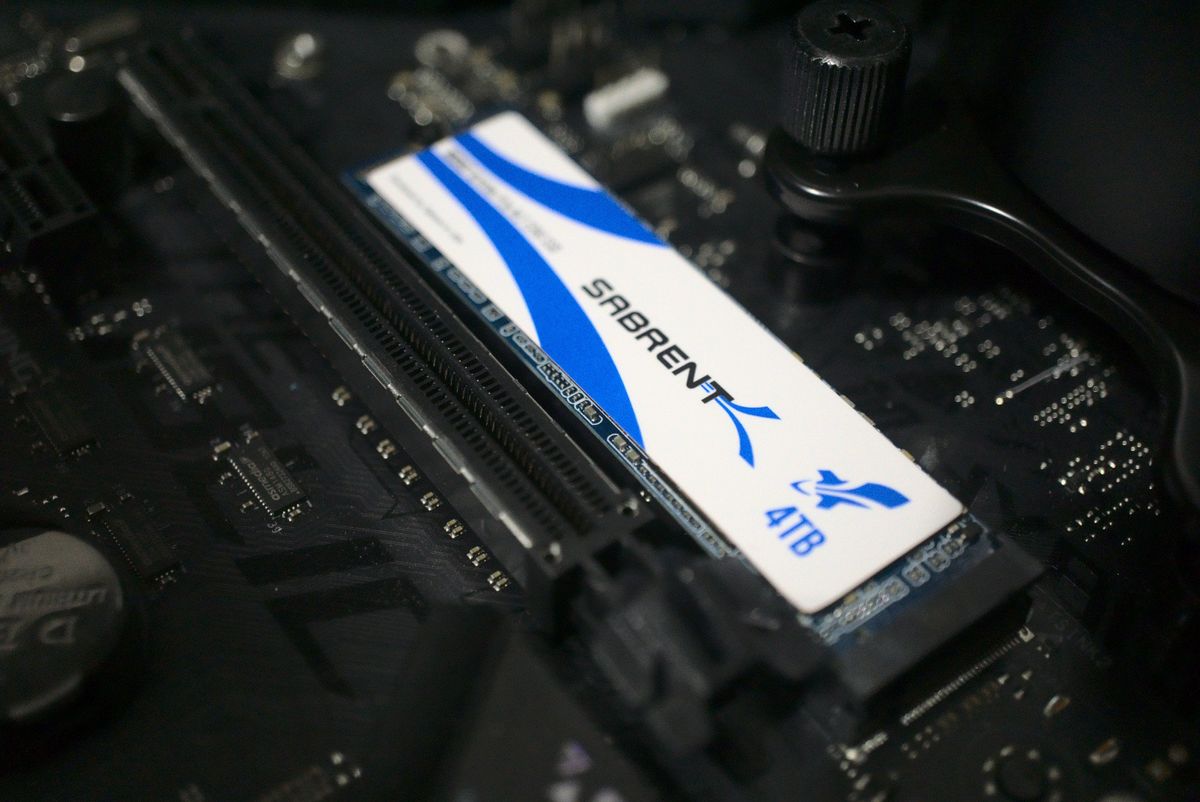It's a familiar story that SSDs are becoming more affordable thanks to advances in storage technology, and that doesn't ring truer than Sabrent's own SSD product line-up. The company specializes in offering great value to those looking for budget-friendly NVMe drives for their PC.
The Sabrent Rocket Q is similar to the Rocket SSD range, but you're looking at expanded storage with the option of 4TB and QLC NAND.
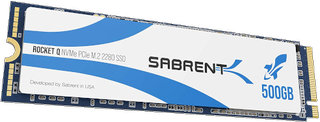
From $80Bottom line: Sabrent's Rocket Q family of NVMe SSDs are high-quality QLC-based storage modules with solid performance figures and an attractive price.
For
- Solid performance
- Great value
- High capacity with up to 4TB
- Good endurance of up to 940TBW
- Five-year warranty
Against
- Not as fast as PCIe 4.0
- Blue PCB
Sabrent Rocket Q offers speedy storage performance
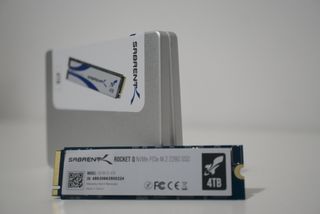
QLC NAND is often viewed as slightly inferior to TLC NAND in that it offers slower performance, but allows companies to charge less and provides more storage to customers. This is great if you're using a QLC-based SSD for Windows, software, or games, but not so if you want raw performance.
Sabrent Rocket Q NVMe SSD series offers great performance for QLC NAND.
The thing is, QLC has come a long way, and just looking at the specification sheet for the Sabrent Rocket Q range showcases this advancement. Random read is a little behind what's available with the Rocket series NVMe SSDs, but random write is up, so too is the maximum capacity. Endurance is pretty high at up to 940TBW (terabytes written).
A five-year warranty backs all this technology from Sabrent, and it's highly unlikely you're going to burn the drive out with more than 940TB written in the span of that time. Powering all this storage is Phison's PS5012-E12S, which is a speedy little controller. The best specifications for the Rocket Q is for the 4TB.
| Category | Spec |
|---|---|
| Capacity | 512GB, 1TB, 2TB, 4TB |
| Interface | PCIe Gen 3.0 x4, NVMe 1.3 |
| Sequential read | Up to 3,400 MB/s |
| Sequential write | Up to 3,000 MB/s |
| Random read | Up to 490,000 IOPS |
| Random write | Up to 680,000 IOPS |
| NAND | Micron 96L QLC |
| Controller | Phison PS5012-E12S |
| Endurance | Up to 940TBW |
| Warranty | Five years |
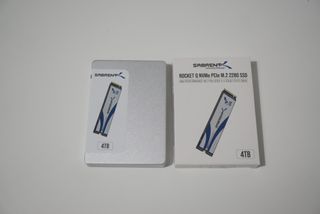
SSDs can get a little hot with all that electricity running through the circuitry, which is why Sabrent went down the route of applying a copper-based sticker to help with thermal management. It doesn't make a huge difference, but bringing the temperature down by a degree or two is better than nothing.
Speaking of warranty, you'll need to register the SSD to extend your warranty from a single year to the full five years. This can be carried out using the Toolbox software from Sabrent, which can also be utilized for checking the status and health of the SSD, as well as updating firmware.


Running CrystalDiskMark 7, recorded results are well in line with expectations. In fact, the 4TB drive we have in for review exceeded the marketed speeds from Sabrent, further cementing QLC's position at the top of the NAND podium alongside TLC.
Installing a few big games like Mount & Blade II: Bannerlord, GTA V, PUBG, and Total War saw rapid loading speeds, aside from GTA V as not even next-gen storage speeds will improve the hours spent on static screens in that game. Windows 10 also boots in a mere second, which is what you'd expect from a top-tier PCIe 3.0 SSD.
What you might dislike about the Sabrent Rocket Q
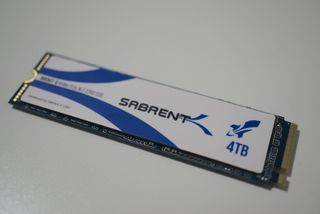
If you need the fastest SSDs on the market, you're better going with PCIe 4.0 SSDs or Intel Optane. Sabrent does offer superior NVMe modules with read speeds of up to 4,400MB/s, but for the price the Rocket Q series is well-positioned.
If you're on PCIe 3.0 and don't plan to upgrade your PC to the next-gen PCIe any time soon, this is about as good as you can get for this price. It would also have been nice to see a different color PCB than blue. Give us a black or even a white PCB, try something unique.
Should you buy the Sabrent Rocket Q?
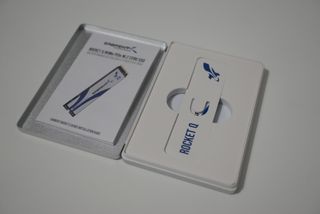
You should shortlist the Sabrent rocket Q SSD for your PC, especially if you're upgrading from a SATA HDD or SSD. The boost in performance with even a more affordable storage module such as this cannot be overstated. It's well worth the asking price, especially considering the five-year warranty (just don't forget to activate it).
It's not the fastest kid on the block, but it's not meant to be. With read speeds of up to 3,400MB/s (with the 4TB version), you'll be loading Windows, Linux, games, software, and everything else in rapid time.

Rich Edmonds was formerly a Senior Editor of PC hardware at Windows Central, covering everything related to PC components and NAS. He's been involved in technology for more than a decade and knows a thing or two about the magic inside a PC chassis. You can follow him on Twitter at @RichEdmonds.
